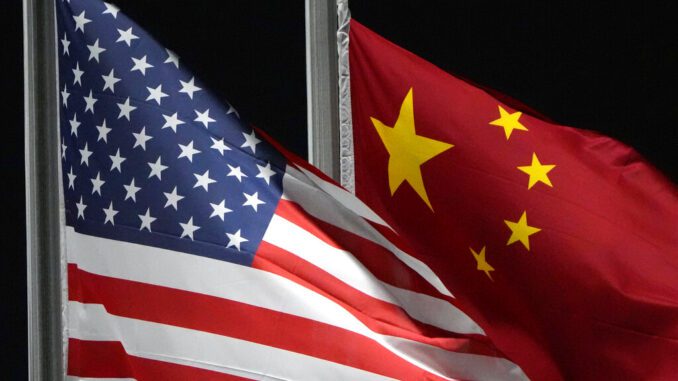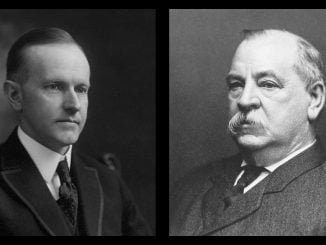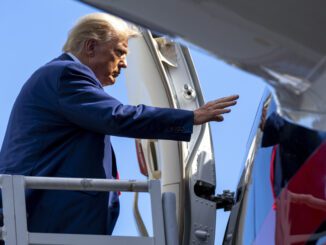
Groucho Marx is purported to have said, “Who ya goin’ to believe, me or your own eyes?”
Today, this quote seems to emanate from the government. All too often politicians hope U.S. taxpayers will not rely on what’s plainly obvious but rather will swallow what the government dictates.
The July 7 edition of The Wall Street Journal offers taxpayers a good opportunity to look around with “your own eyes.” No less than four (4) major articles in this edition lay bare the danger and the futility of two leading, intersecting drivers of current government policy. Industrial policy ― the use of taxpayers’ dollars by politicians to pick economic winners and losers ― and climate policy ― the quasi-religion that drives politicians to waste billions of taxpayers’ money in the name of “science” ― are two primary pillars of current progressive thought.
Instead of meekly swallowing the “wisdom” of our political leaders, taxpayers should take a closer look.
The July 7 WSJ front page trumpeted, “New York’s $1 Billion Bet on Tesla Isn’t Paying Off.” This is the sad story, going back to 2015, when then-Gov. Andrew Cuomo unveiled plans for the state of New York to construct in Buffalo a vast, quarter-mile-long facility with 1.2 million square feet of industrial space. In addition, the state kicked in $240 million of manufacturing equipment. This “Buffalo billion” facility was to house a Tesla solar panel production operation that would create thousands of jobs and attract numerous complementary businesses to Buffalo.
It never happened. The facility houses a few hundred analysts who largely work on other Tesla projects — not the intended solar panels. The only complementary new business is a coffee shop. E.J. McMahon, senior fellow at the Empire Center for Public Policy, concluded, “In terms of sheer direct cost to taxpayers, this may rank as the single biggest economic development boondoggle in American history.”
In the second article, one soon finds “New Jersey Tax Break for Wind Developer.” Not to be outdone by neighboring New York, the state of New Jersey has just authorized a massive tax break for a Danish offshore wind developer.
Democrats declined to estimate the cost, but Republicans put it at $1 billion.
Indeed, America’s governors and state legislatures are in a headlong stampede to ladle out tax benefits to attract industrial megaprojects. In 2018, Wisconsin committed $3 billion in state subsidies to Taiwan’s Foxconn to erect a factory that would employ 13,000 workers. The facility sits empty. Another massive failure. Since 2006, Elon Musk’s Tesla and Space X have raked in more than $4 billion in various state credits, and the whole electric vehicle industry is addicted to government subsidies.
Continuing to the third article, the taxpayer will see just how corrosive an alliance between business and government can become. The article “EV Makers to End China Price War” discusses the recent collusion between Chinese automakers and the Chinese government to eliminate price competition. Tesla had recently initiated a conventional, free-market price-cutting strategy to boost sales and market share. The Chinese automakers and their partner, the Chinese government, clamped down with a vengeance. Tesla joined 15 Chinese automakers in agreeing to avoid “abnormal pricing” and to promote “core socialist values.” In order to retain the subsidies offered by the Chinese government, Musk buckled under socialist pressure.
Whether in China or the U.S., government subsidies come with strings attached.
The fourth article in the July 7 paper spoke to the debate about climate policy. The White House released a report by the Council of Economic Advisers and the Office of Management and Budget assessing the impact of global temperature changes on economic growth. The conclusion, which is an embarrassment to the left: global temperature changes have had ― and will have ― very minimal effect on economic growth.
The hysterical rhetoric of climate activists has driven much of the industrial policy in recent years. By consistently exaggerating the urgency, consequences and certainty of climate change, “climate experts” have encouraged politicians to approve many wasteful economic boondoggles. The White House did its best to downplay this report.
Government entities — domestic and foreign — have an abysmal track record in picking economic winners and losers. Attempts to boost industrial development and direct economic growth have proven to be massive wastes of taxpayer dollars. The seemingly obvious lesson is for government to abandon these subsidy programs and allow the free market to reward corporate excellence.
It’s time for taxpayers to look around and believe their own eyes.



